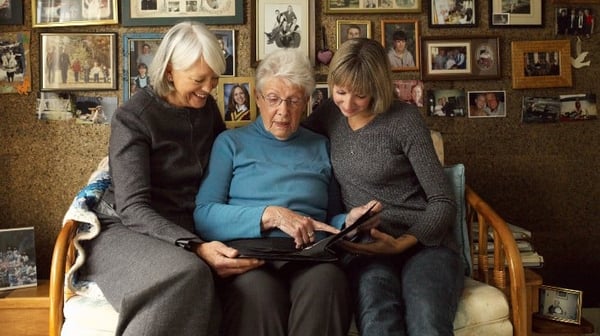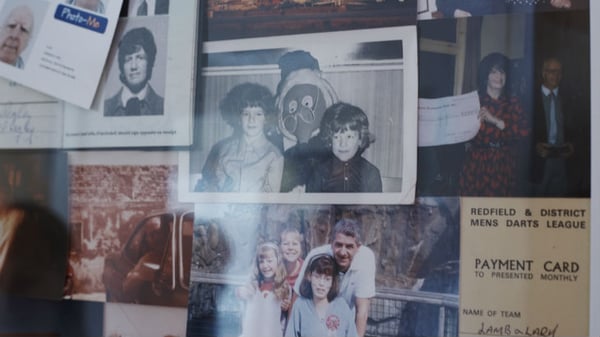Removing items from a loved one’s house after their death
For any bereaved family, removing items from a house after a death can be a challenging experience. Whether you’ve been tasked with rummaging through treasured items or everyday objects, it’s understandable if you’re not exactly looking forward to sorting through a deceased person’s possessions. But to make the process easier, we’ve compiled some tips on clearing a house after death.

You might also be interested in...
1. Wait until you’re ready
It’s never easy to know when to dispose of a deceased person’s belongings, but ultimately, this is a personal decision for you and anyone else who is bereaved. Some people may want to wait until they feel they’ve had time to process their loss, while for others, sorting through treasured memories may help the grieving process. The most important thing is that you don’t feel pressured to take on the task before you’re up to it.
2. Get someone to join you
Many people decide that the best way to clear a house is to do it with someone else. Not only do ‘many hands make light work’, you may also find it easier to manage emotionally if you have another friend or family member to support you.
3. Consider repeat visits
Trying to clear a house in one day could be physically and mentally demanding, so breaking up your visits might be the smartest way to clear a house after someone’s death. Perhaps consider visiting for a shorter period on your first trip, giving yourself time and space to absorb the emotional weight of the experience. Then on subsequent visits, you can get stuck into the decluttering.
4. Create a list of key items
Before you start clearing the house, you could ask family members and friends if there are any particular items that they want to keep. This way, you can focus your house clearing efforts by working your way through the checklist and reduce the likelihood that any sentimental items are chucked or given away.
5. Value the possessions first
Managing a house clearance before probate is completed can be an arduous task. If you’re responsible for selling a probate property, it’s worth remembering that this can take longer than a normal sale, as there are many procedural matters to attend to – such as obtaining a Grant of Probate. And when figuring out your Inheritance Tax liability, remember that the value of the estate includes all the deceased person’s possessions, which are known as ‘chattels’. Therefore, valuing or selling chattels before probate is an important consideration ahead of clearing out a house in the UK. If any of your family members are looking to remove items before the probate process is finalised, you might want to advise them to hold fire. You could visit a local auction house or a professional appraiser if you’re looking for an accurate chattel valuation, especially for antique objects.
6. Check the will
Did the deceased person mention what should happen to their possessions in their will or letter of wishes? It may be that items with sentimental value will already have been assigned to certain family members or friends. If more than one person has their eye on a particular item, the deceased’s written instructions could make your house clearance easier, and help you avoid an awkward tug-of-war. For decisions about personal belongings after death without a will, it’s important to have honest and respectful conversations with family members so that no one feels resentful if they lose out on an item.
7. Prepare your packing materials
Clearing a house after a death means putting all those possessions into sturdy boxes. These should ideally be labelled with their eventual destination or purpose, such as ‘for sale’. Cardboard boxes can be harder to obtain than you might think, so give yourself plenty of time ahead of your visit, and don’t forget the duct tape!
8. Hire professionals
If you find it too upsetting to clear away the deceased person’s possessions, you could hire a professional house clearance or removals company who can remove the items sensitively, often with a dedicated storage area for possessions you’ve asked to keep aside. You may also want to consider hiring a skip to dump any waste, and potentially hire a van or local service to take unwanted items to the recycling centre or landfill.
9. Take photographs
While everyone will have their own personal approach to a house clearance after death, one idea is to take pictures of much-loved items as a special memento. This may ‘soften the blow’ if you’re giving items away, and you can always make a scrapbook of memories for future generations to enjoy.
10. Be choosy about what you keep
While it may be hard to let go of possessions, ask yourself whether you (or your nearest and dearest) are really going to need certain items in the future. If you’re not careful, you may simply transfer one mountain of belongings from one home to another.
11. Donate items to charity
Letting go of treasured items is never going to be easy, but perhaps one of the best ways to clear a house is to donate some of the items to a worthy charity. If you’re struggling with the emotions of removing items from a house after a death, your charitable gesture may at least provide some comfort that the belongings are going to a worthy cause. Alternatively, you could host a car boot sale or sell the items online to recover some money and put it towards the cost of a funeral.
Who pays for a house clearance after a death?
After the death of a loved one, the executors named in the deceased person’s will are responsible for using any funds from the estate to meet final costs, such as a professional house clearance, or funeral fees, for example. This could be partially funded through an Over 50s Life Insurance payout if the deceased owned a policy, though it’s important to be aware there is no guarantee it would meet these costs in full. If there are not enough funds leftover, the cost of a house clearance after death would normally be met by relatives. Read more in our guide to dying without a will.
Find out more about Over 50 Life Insurance
Other related articles

How to plan a funeral

What are the duties of the executor of a will?
